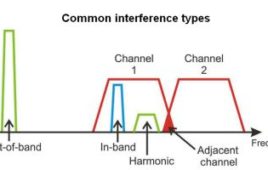Verizon on Thursday filed comments with the FCC Thursday urging the commission to make super high frequency spectrum available to mobile operators for the deployment of next-generation 5G services using millimeter wave technology.
Specifically, Verizon asked the commission to allow 28GHz and 39 GHz licensees to use their licenses for mobile services and auction spectrum in those bands that is not already licensed. The carrier also encouraged the commission to unify the 37 GHz and 39 GHz bands into a single 3 GHz swath of continuous spectrum.
According to Verizon, such actions will “unleash” millimeter wave spectrum and “help usher in 5G services for U.S. consumers.” The combination of the 37 GHz and 39 GHz bands, the carrier said, will support the creation of multiple licenses with bandwidths of 200 MHz or more that would be “attractive” to industry players looking for more bandwidth.
“The band could host a large pool of very wide-bandwidth channels that would facilitate major efficiencies for operators and would be ideal for future highbandwidth applications such as video distribution,” Verizon wrote in the filing.
Verizon’s comments come in the context of the FCC’s consideration of “hybrid” proposal for regulations on the 37 GHz band that would give licensees on the band the right only to deploy outdoor operations, while assigning indoor operating rights on the same channels and in the same territory to an as yet undetermined class of real estate owners or building tenants.
Verizon argued in its filing that such a plan would impair the value of that spectrum.
“The Commission should not artificially limit bandwidth, performance, and innovation through arbitrary pre-deployment aggregation limits,” Verizon wrote. “It is far too early in the innovation cycle to know how much bandwidth an operator will require to provide the type of services envisioned in a 5G environment…Not only would a band-specific spectrum aggregation cap not address any valid public policy objective, but it would risk causing substantial consumer harm by precluding wideband operations that may be necessary for maximizing the utility of this spectrum.”
In a blog post accompanying the filing, Verizon vice president of Wireless Policy Development Carla Rath said the FCC’s swift action on the matter will be critical to facilitating the carrier’s 2017 launch of 5G services.
According to Rath, 5G services have the potential to handle 50 times the throughput of 4G LTE, with latency in the single milliseconds.
“The potential for using millimeter wave frequencies is one of the most exciting aspects of 5G,” Rath wrote. “Advances in radio and processing technologies show great promise for these spectrum bands to produce significant bandwidth for wireless applications… The FCC’s swift action in this proceeding will be critical to whether the United States retains its global leadership in advanced wireless communications.”
Filed Under: Wireless • 5G and more, Telecommunications (spectrums)




